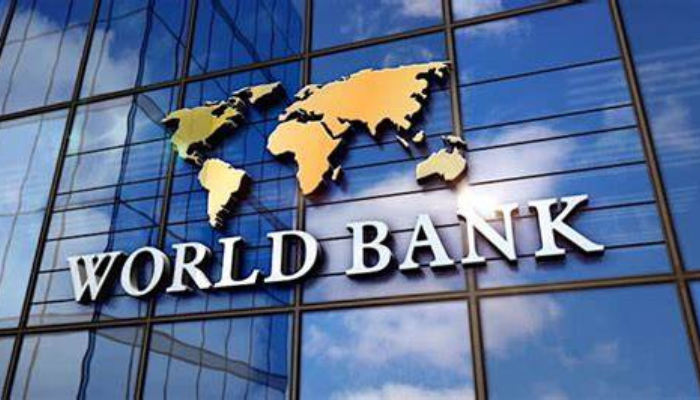World Bank flags Nigeria’s rising revenue collection cost
…Says nearly half of the population now in poverty
…Debt-to-GDP seen dropping to 39.8%
Nigeria’s cost of revenue collection has more than doubled in one year, constraining government spending on critical infrastructure needed to power development and engender growth, according to the World Bank.
Combined Federal Account Allocation Committee (FAAC) deductions to revenue agencies more than doubled from N871 billion in 2023 to N1.78 trillion in 2024, forcing the World Bank to urge authorities to “improve the use of public resources for development,” the Washington-based lender said in its bi-annual development update on Nigeria released on Wednesday.
Nigeria has seven revenue agencies such as the Federal Inland Revenue Service (FIRS), the Nigeria Customs Service (NCS), among others, with each getting a share from the funds generated. That compares to a single agency in Kenya, Ghana and South Africa.
But the new tax reforms, whose implementation begins in January 2026, is expected to phase out the multiple agencies into a single revenue authority now known as the Nigeria Revenue Service.
The World Bank however urged authorities to reduce the cost of collection of revenue agencies and increase fiscal transparency to bring reform gains home to millions of Nigerians whose purchasing power has been eroded by the strings of reforms undergone in the last two years.
Nearly half of Nigerians live in poverty
The World Bank, in its report, said poverty levels are projected to hit 61 percent in 2025 as 139 million people have slipped below $3 per person per day compared to 129 million people last year.
The lender said weak growth and high inflation eroded the purchasing power of Nigerians more sharply since 2019, largely reflecting pre-2023 policy missteps and external shocks.
Read also: 139m Nigerians still living in poverty despite reforms – World bank
“Between 2019 and 2023, average consumption fell by 6.7 percent, especially in urban areas, while poverty rose from 40 percent (81 million people) to a projected 61 percent (139 million people) by 2025, with three-quarters of the increase occurring before 2023,” the lender said.
“Recent reforms are correcting past policy missteps, but meaningful improvements in livelihoods will hinge on sustained disinflation, stronger inclusive growth, better public services, and continuous targeted support to the most vulnerable.”
Nigeria has embarked on a series of reforms since President Bola Tinubu took the helm of affairs in May 2023, including scrapping decades of fuel subsidies that drained government finances and relaxing the exchange rates to be more market determined.
Those radical policies, though have restored long-lost investor confidence in Africa’s most populous nation, stoked inflation to a near three-decade high and saw the naira tumble by more than 70 percent.
But the storm might just be over as key economic indicators are showing signs of recovery and stability, a turnaround that’s expected to slow poverty levels in the medium to long term.
The bank noted that Nigeria’s share of debt as a percentage of its gross domestic product (GDP) would decline in 2025 to 39.8 percent from 49.2 percent, marking the first time in more than a decade, thanks to stronger growth and a more stable exchange rate.
This is despite the debt service-to-revenue ratio expected to surge 44 percent in 2025 from 38 percent in 2024, reflecting higher domestic interest rates and principal repayments on external debt.
GDP growth is projected to close the year at 4.2 percent after it grew at its quickest pace in the second quarter (Q2) to 4.23 percent, buoyed by improved oil production.
The World Bank wants authorities to bring “reform gains home to Nigerians” by reducing food inflation, improving the use of public resources for development, and strengthening the social safety net to protect the poor and economically insecure.

